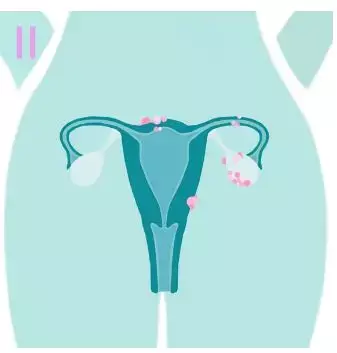- Home
- Medical news & Guidelines
- Anesthesiology
- Cardiology and CTVS
- Critical Care
- Dentistry
- Dermatology
- Diabetes and Endocrinology
- ENT
- Gastroenterology
- Medicine
- Nephrology
- Neurology
- Obstretics-Gynaecology
- Oncology
- Ophthalmology
- Orthopaedics
- Pediatrics-Neonatology
- Psychiatry
- Pulmonology
- Radiology
- Surgery
- Urology
- Laboratory Medicine
- Diet
- Nursing
- Paramedical
- Physiotherapy
- Health news
- Fact Check
- Bone Health Fact Check
- Brain Health Fact Check
- Cancer Related Fact Check
- Child Care Fact Check
- Dental and oral health fact check
- Diabetes and metabolic health fact check
- Diet and Nutrition Fact Check
- Eye and ENT Care Fact Check
- Fitness fact check
- Gut health fact check
- Heart health fact check
- Kidney health fact check
- Medical education fact check
- Men's health fact check
- Respiratory fact check
- Skin and hair care fact check
- Vaccine and Immunization fact check
- Women's health fact check
- AYUSH
- State News
- Andaman and Nicobar Islands
- Andhra Pradesh
- Arunachal Pradesh
- Assam
- Bihar
- Chandigarh
- Chattisgarh
- Dadra and Nagar Haveli
- Daman and Diu
- Delhi
- Goa
- Gujarat
- Haryana
- Himachal Pradesh
- Jammu & Kashmir
- Jharkhand
- Karnataka
- Kerala
- Ladakh
- Lakshadweep
- Madhya Pradesh
- Maharashtra
- Manipur
- Meghalaya
- Mizoram
- Nagaland
- Odisha
- Puducherry
- Punjab
- Rajasthan
- Sikkim
- Tamil Nadu
- Telangana
- Tripura
- Uttar Pradesh
- Uttrakhand
- West Bengal
- Medical Education
- Industry
Aggressive treatment beneficial for Older women with ovarian cancer; finds study

According to the recent findings of a research published in Annals of Surgical Oncology,age and feasibility of complete cytoreduction should be considered when treatment methods are selected for elderly patients. Further the study has highlighted that a carefully selected elderly population can benefit significantly from aggressive treatment methods.
Women 65 years of age or older with epithelial ovarian cancer (EOC) are thought to have a worse prognosis than younger patients. However, no consensus exists concerning the best treatment for ovarian cancer in this age group.
The current report presents outcomes for patients treated with cytoreductive surgery (CRS) plus hyperthermic intraperitoneal chemotherapy (HIPEC).
In this study,a prospective database of EOC patients treated with CRS/HIPEC (1998–2019) was analyzed. Perioperative variables were compared by treatment including upfront CRS/HIPEC, neoadjuvant chemotherapy plus CRS/HIPEC (NACT + CRS/HIPEC), and salvage CRS/HIPEC, and by age at surgery (< 65 and ≥ 65 years). Survival analysis was performed, and outcomes were compared.
Data analysis revealed the following facts
- Of the 148 patients identified, 42 received upfront CRS/HIPEC, 48 received NACT + CRS/HIPEC, and 58 received salvage CRS/HIPEC.
- Each group was subdivided by age groups (< 65 and ≥ 65 years). The median overall survival (OS) after the upfront CRS/HIPEC was 69.
- 2 months for the patients < 65 years of age versus 69.3 months for those ≥ 65 years of age. The OS after NACT + CRS/HIPEC was 26.9 months for the patients < 65 years of age versus 32.9 months for those ≥ 65 years of age, and the OS after salvage CRS/HIPEC was 45.6 months for the patients < 65 years of age versus 23.9 months for those ≥ 65 years of age.
- The median progression-free survival (PFS) after upfront CRS/HIPEC was 41.3 months for the patients < 65 years of age versus 45.4 months for those ≥ 65 years of age.
- The PFS after NACT + CRS/HIPEC was 16.2 months for the patients < 65 years of age versus 11.2 months for those ≥ 65 years of age, and the PFS after salvage CRS/HIPEC was 18.7 months for the patients < 65 years of age versus 10 months for those ≥ 65 years of age.
- The median follow-up period for the entire cohort was 44.6 months [95% confidence interval (CI) 34.7–60.6 months].
Researchers concluded that carefully selected elderly population can benefit significantly from aggressive treatment methods in ovarian cancer patients. Therefore age and feasibility of complete cytoreduction should be considered when treatment methods are selected for elderly patients.
For full article follow the link: https://doi.org/10.1245/s10434-020-09415-4
Primary source: Annals of Surgical Oncology
Dr Satabdi Saha (BDS, MDS) is a practicing pediatric dentist with a keen interest in new medical researches and updates. She has completed her BDS from North Bengal Dental College ,Darjeeling. Then she went on to secure an ALL INDIA NEET PG rank and completed her MDS from the first dental college in the country – Dr R. Ahmed Dental College and Hospital. She is currently attached to The Marwari Relief Society Hospital as a consultant along with private practice of 2 years. She has published scientific papers in national and international journals. Her strong passion of sharing knowledge with the medical fraternity has motivated her to be a part of Medical Dialogues.
Dr Kamal Kant Kohli-MBBS, DTCD- a chest specialist with more than 30 years of practice and a flair for writing clinical articles, Dr Kamal Kant Kohli joined Medical Dialogues as a Chief Editor of Medical News. Besides writing articles, as an editor, he proofreads and verifies all the medical content published on Medical Dialogues including those coming from journals, studies,medical conferences,guidelines etc. Email: drkohli@medicaldialogues.in. Contact no. 011-43720751


